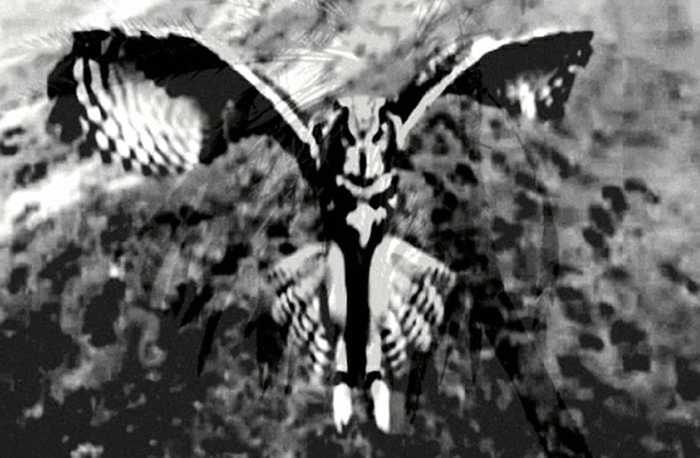Francesco Urbano Ragazzi
Nástio Mosquito
Oratorio di San Ludovico, Dorsoduro 2552, Venice
May 3 – July 26, 2015
Curated by Jonathan Watkins in collaboration with Francesco Urbano Ragazzi and Roma Piotroswka

Ikon Gallery and Nuova Icona are pleased to present a new video and performance project by Nástio Mosquito at the 56th Biennale di Venezia, in the Oratorio di San Ludovico, Dorsoduro.
Born in 1981 in Angola, largely educated in Portugal, and now currently living in Belgium, Nástio Mosquito is emerging to be one of the most exciting artists of his generation and was recently awarded the Future Generation Art Prize. Rooted in the broadcast industry, where he worked previously as director and cameraman, his practice embraces video and music, performance and installation.
Theatrically, Mosquito takes centre stage in his work. He often assumes roles, through mimicry, in order to express ideas occurring to him, not so much as his own cherished beliefs but rather observations on human folly manifested in modern life. The distance between his actual identity and such characterisations enables him to express himself variously as being transgressive, cool, cynical, profane and vulgar. “Nástia”, a know-it-all with a Russian accent – a monster engendered by the Cold War – epitomises this tendency, and often makes an appearance.
Nástia’s Manifesto (2008), a circular projection suspended just above the floor, is based on the keywords “Hypocritical, Ironic and Do Not Give a Fuck”. In Demo de Cracía (2013), the artist emerges in a studio to shoot a music video for his single. In front of a large green screen, he dances and performs before breaking into a speech on Angola and identity. The exhibition also includes a new video work created by Nastivicious – a collaboration between Nástio Mosquito and Spanish artist Vic Pereiró.
In a variety of ways Mosquito is an artist pointing us towards a future in which clear distinctions made between art forms, between popular culture and fine art, and the categorisation of cultural identities will have become either redundant or irrelevant. His self-awareness as someone in the art world sits alongside his concerns with African politics, especially those pertaining to Angola – as it deals with the legacy of a long and bloody civil war – sexual politics, rampant consumerism and other symptoms of globalisation.
Mosquito has performed at music festivals within the context of visual arts programmes – Biennale of Bordeaux (2009), Tate Modern (2012), Berardo Collection (2013) – whilst having a lively online presence, including an app, and a recently released album, Se Eu Fosse Angolano. Ikon presented DAILY LOVEMAKING, Nástio Mosquito’s first solo museum show from February –April 2015 in Birmingham. Previous group exhibitions include 9 Artists at Walker Art Center (2013); Politics of Representation, Tate Modern (2012); and the 29th São Paulo Biennial (2010).
The exhibition is accompanied by a publication, with texts by Jonathan Watkins and Gaby Ngcobo.



